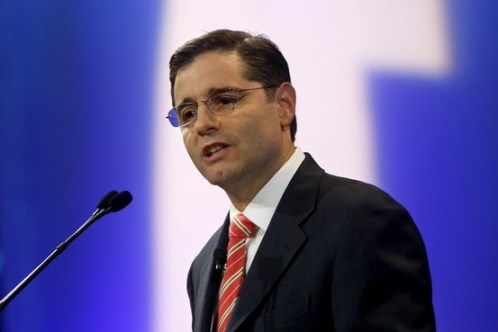 Federal regulators receive tens of thousands of customer complaints about wireless services every year, but don’t do enough to follow up or protect consumers who have problems with their mobile carriers, government auditors found.
Federal regulators receive tens of thousands of customer complaints about wireless services every year, but don’t do enough to follow up or protect consumers who have problems with their mobile carriers, government auditors found.
In a report released Thursday, the Government Accountability Office said the Federal Communications Commission needs to ramp up oversight of the wireless industry and do a better job of enforcing consumer protection rules.
The GAO report comes almost four months after the FCC opened a series of inquiries into the state of the wireless industry, including an examination of so-called “truth-in-billing” rules, which require phone companies to clearly describe charges on consumer bills.
The Government Accountability Office produced the report at the request of Rep. Edward Markey, D-Mass., a member of the House Energy and Commerce Subcommittee on Communications, Technology and the Internet.
To complete its study, the GAO conducted a random survey of more than 1,100 wireless customers around the country. It found that while 84 percent of consumers are satisfied with their mobile phone service, millions are unhappy with issues such as wireless billing practices, customer service, early termination fees and other contract terms.
The report estimates that among consumers who wanted to switch carriers but did not do so, 42 percent did not switch because they did not want to pay an early termination fee.
The GAO also found that while the FCC forwards customer complaints to carriers for response, it “has conducted little other oversight of services provided by wireless phone service carriers because the agency has focused on promoting competition.”
Among the key findings of the GAO report:
• most wireless consumers with problems do not complain to the FCC and many do not know where to turn with complaints
• the FCC lacks a way to measure outcomes of its process for handling complaints
• the FCC may be unaware of trends in consumer complaints or industry practices because it lacks a way to analyze complaints
• the FCC has not enforced billing rules for wireless carriers
• FCC communication with state regulators about wireless industry oversight is infrequent and state authority to regulate wireless carriers remains unclear, leading to a reluctance by some states to deal with billing disputes and other problems
The GAO report calls on the FCC to develop goals for handling wireless complaints and reach out to consumers about the agency’s complaint process. It also recommends the commission analyze complaints to identify trends and determine whether carriers are complying with existing rules. And it calls on the agency to develop guidelines laying out federal and state authority to regulate the industry and to establish procedures for communicating with state officials.
“The FCC can — and must — do more to make sure consumer concerns are resolved by wireless carriers and oversee the wireless industry with a greater focus on consumer protection,” Senate Commerce Committee Chairman John Jay Rockefeller, D-W. Va., said in a statement. “It is time for the agency to take real action to better protect wireless consumers.”
In a written response to the GAO, the FCC said it has already begun a “sweeping review of the wireless market” and is taking “appropriate steps to fashion any needed regulatory action for protecting consumer interests.” Among other things, the agency is studying ways to provide wireless consumers with better access to clear, “plain English” information about wireless plans.
In addition, the FCC last week asked Verizon Wireless why it recently doubled the fees it charges customers to break their contracts on “smart” phones. Last month, the carrier hiked the maximum early contract termination fee for smart phones to $350 from $175. Verizon has said the phones are a costlier part of its business.
Sen. Amy Klobuchar, D-Minn., has introduced a bill that would require wireless carriers to clearly notify consumers about early termination fees when they sign up for a contract and to prorate those fees over the life of the contract.


